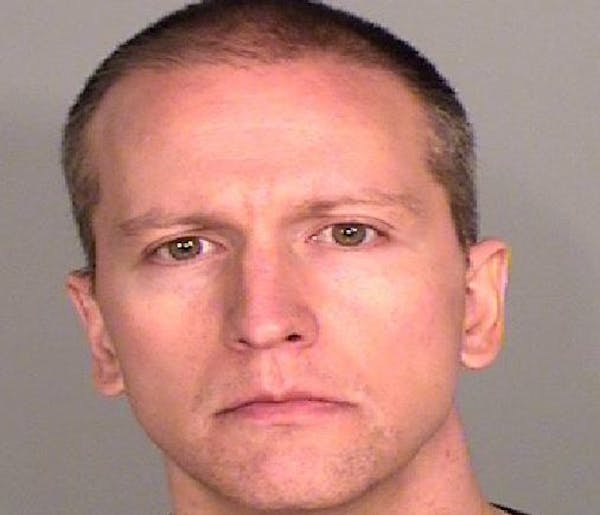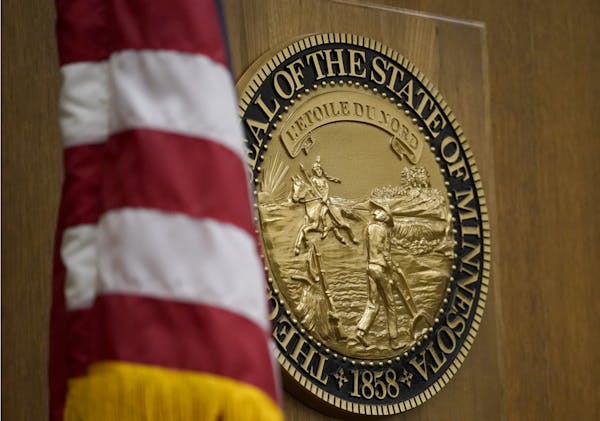Derek Chauvin said in court Thursday that he will not testify in his murder trial shortly before the defense said it has completed its case and the prosecution reiterated the same, setting the stage for closing arguments and deliberations Monday.
"I will invoke my Fifth Amendment privilege today" to not risk making any self-incriminating statements in Hennepin County District Court, where the fired Minneapolis police officer is charged with killing George Floyd late last spring in Minneapolis.
Later in the morning, defense attorney Eric Nelson said, "Your honor, the defense rests."
Prosecutor Jerry Blackwell did the same after the brief reappearance of a state witness.
With that, Cahill said, "The evidence is now complete for this case."
The judge, in anticipation of jurors being curious about how long their sequestered deliberations might last, told them, "If I were you, I would plan for long and hope for short. ... Whether it's an hour or a week, it's entirely in your province."
Cahill had adjourned proceedings until Monday but unexpectedly called for the trial's resumption Friday without the jury present. The topic was how the jury will be instructed by the judge.
Until Monday's reconvening, the judge told the jurors that he and the attorneys will be going over administrative and legal matters including the wording of his instructions to them on how to apply the law in this case.
Cahill also told them they will have a computer and a monitor so they can go over audio and video evidence as they wish while in the deliberation room and not be required to return to the courtroom for any reviewing.
Chauvin's declaration to invoke the Fifth Amendment to the U.S. Constitution came during a series of questions from his attorney and outside the presence of the jury.
Nelson and Chauvin were seated at the defense table as the defendant held a cordless microphone and had his voice heard for the first time on the record during the trial.
Chauvin agreed that he and Nelson have had many conversations about whether he would testify, including as recently as Wednesday night. Chauvin said he understood that any decision to testify was his alone and neither the state nor the court can equate silence with guilt.
Nelson reminded Chauvin that "the state would have broad latitude" should it have had the opportunity to cross-examine him as a witness in his own defense.
Cahill then reinforced the point about who decides. Asked this time by the judge whether this was his decision, Chauvin said, "It is, your honor."
Chauvin is charged with second-degree unintentional murder, third-degree murder and second-degree manslaughter in the killing of Floyd last spring. Three other fired officers who assisted in Floyd's arrest — J. Alexander Kueng, Thomas Lane and Tou Thao — are scheduled to be tried in August on charges of aiding and abetting murder and manslaughter. All four defendants are out on bond as their cases move forward.
Occupying the Floyd family's seat in court Thursday morning was Arthur Reed, a cousin. Asked outside the courtroom about Chauvin's decision not to testify, Reed said he felt that the prosecution "would have chopped him down second by second" should he have been questioned about why he remained on Floyd's neck for more than 9 minutes.
"We didn't think they were going to put him on at all," Reed said.
He added: "We're just ready to get this over with, make sure [Floyd] gets the justice he deserves. We think the state has put on an excellent case."
Prosecutors then called Dr. Martin Tobin as a rebuttal witness to Wednesday's defense testimony by Dr. David Fowler, who said that carbon monoxide from a nearby police squad may have played a role in Floyd's death.
Tobin said he disagreed with Fowler's contention that Floyd's blood could have contained anywhere from 10 to 18% of the poisonous gas.
He said autopsy results showed Floyd's blood had an oxygen saturation level of 98%, meaning, "all there was for anything else was 2%." Tobin noted that humans normally have anywhere from 0 to 3% of carbon monoxide in their blood at any given moment.
The prosecution had intended to produce Thursday as evidence test results that specifically measured the carbon monoxide in Floyd's blood. However, Nelson objected, saying the state knew months ago that Fowler would testify about carbon monoxide, and he called it "incredibly prejudicial to the defense" to present the test results after Fowler has already left the state.
Cahill ruled that Tobin could testify about how carbon monoxide could have affected Floyd, but not mention the test results, which were dug out Wednesday by Dr. Andrew Baker, the county medical examiner who did the autopsy.
"If he even hints at test results the jury has not heard about, it's gonna be a mistrial, pure and simple," the judge said.
"This late disclosure is not the way we should be operating here," Cahill said, while at the same time emphasizing that he's not assigning any ill intent to the prosecution.
Cahill said that he too noted that Fowler would testify about carbon monoxide, and the state had sufficient notice to test samples "and dig a little deeper."
"It's just serendipity that Dr. Baker calls the state and says, 'Oh by the way, it does exist,' " Cahill said.
On Wednesday, jurors heard from just from Fowler, a retired forensic pathologist who testified that the 46-year-old Floyd died of a cardiac arrest combined with drug use, and not a lack of oxygen as several prosecution witnesses contended in their testimony.
Dr. David Fowler also testified that the manner of death was "undetermined" due to a combination of factors — including police restraint and carbon monoxide poisoning from a nearby squad car — that could point in multiple directions. The Hennepin County Medical Examiner's Office ruled last year that the manner of death was homicide, an act caused by another person.
Star Tribune staff writers Rochelle Olson and Chao Xiong contributed to this report.
Paul Walsh • 612-673-4482

What St. Paul gardeners need to know about the city's new boulevard garden rules

Rep. Ilhan Omar's daughter suspended from college for involvement in pro-Palestinian protests
30 days in jail for ex-school choir director in northwestern Minnesota who sexually assaulted girl

St. Olaf talks death in a cafe setting


